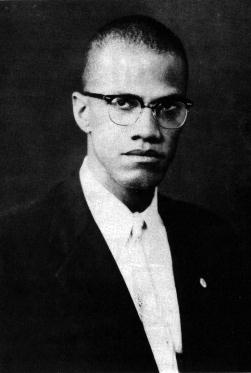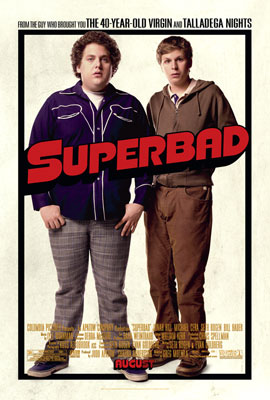Tuesday, September 06, 2005
Prophylactics: on the philosophy of saving lives and preventing the itch.
Prophylactics are great aren’t they? Whether it is a sordid vacation in lands unknown, or for day to day use around the homestead, you just can't beat them. Nor can you beat the philosophy that goes with them, preventing a problem so that one doesn’t have to deal with a bigger, uglier, itchier one later. Be it dealing with the wee itchies, unwanted children, heart disease, or hurricanes, a prophylactic treatment is almost always the desired means of dealing with trouble before it becomes embarrassing chaos.
From the perspective of humanity, it makes good sense to employ a prophylactic philosophy. For simple tasks like keeping the unit its normal healthy colour, it’s not that big of a deal, but in terms of readying a city, state, or country for a hurricane, it can be a huge process.
Right now, we’re playing the blame game, and indeed this is good. The situation in New Orleans became too critical too fast, and answers are needed. As Dinkas has done well to point out, the blame does not entirely rest with Mr. W. in the Whitehouse. We can look at the Louisiana level where there are allegations floating around that state officials defrauded the hurricane relief purse earlier this year. There are also questions concerning the nature of policing in New Orleans. Telling are the pictures of white cops with automatic weapons squaring off against unemployed blacks with shopping carts.
At all levels one thing stands quite clear in that New Orleans, Louisiana, and the U.S. are not cohesive enough to handle a situation like this, let it be in a reactionary or prophylactic fashion. How do you deal with a situation like Katrina? You do so by investing in human resources and infrastructure from day one. By working with communities and individuals so that preparedness measures are known and can be effectively carried out. But in the Big Easy, no such cohesion exists to allow for this. Now, we’re faced with a series of reactionary gestures.
Cuba gets beaten with hurricanes every year. In the past 46 years the country has developed one of the most sophisticated hurricane preparedness networks anywhere. It is really quite something to watch. Sweating through hurricane Dennis, I was able to see how it all plays out. These guys have their shit down cold. People are evacuated with speed and care. Electricity, water, and gas are cut 12 hours before and after the storm, and then it is restored in about 20 hours. People are well informed of he wind speed right to when the next evacuation shuttle is scheduled to arrive.
Seeing that Katrina was heading for New Orleans, Fidel Castro contacted Washington to offer 1,100 doctors, medicine, and civil engineers. This offer was made on August 30, and was repeated on September 2. The response from Washington was “no!” And, “could you please not tell the North American media about your offer.”
While not a prophylactic method, definitely a humanitarian one; one that has nothing to do with politics, and everything to do with getting services to the poor. Washington, either too proud, too stupid, or too afraid of Cuban doctors getting shot at in New Orleans, refused much needed immediate help, and also blew a great opportunity to build dialogue with a country that is well versed in dealing with hurricanes. Admittedly though, for the U.S. to take preventative measures for hurricanes Cuban style, some major philosophical shifts would have to take place I reckon.
The odds of that? Well, we’ll probably see Pope Benedict IX handing out Durex Pure Pleasure® at mass before we see the Bush administration giving serious thought to humanitarianism and social cohesion.
For more information about the benefits of using prophylactics in your day-to-day, please contact your family physician.
From the perspective of humanity, it makes good sense to employ a prophylactic philosophy. For simple tasks like keeping the unit its normal healthy colour, it’s not that big of a deal, but in terms of readying a city, state, or country for a hurricane, it can be a huge process.
Right now, we’re playing the blame game, and indeed this is good. The situation in New Orleans became too critical too fast, and answers are needed. As Dinkas has done well to point out, the blame does not entirely rest with Mr. W. in the Whitehouse. We can look at the Louisiana level where there are allegations floating around that state officials defrauded the hurricane relief purse earlier this year. There are also questions concerning the nature of policing in New Orleans. Telling are the pictures of white cops with automatic weapons squaring off against unemployed blacks with shopping carts.
At all levels one thing stands quite clear in that New Orleans, Louisiana, and the U.S. are not cohesive enough to handle a situation like this, let it be in a reactionary or prophylactic fashion. How do you deal with a situation like Katrina? You do so by investing in human resources and infrastructure from day one. By working with communities and individuals so that preparedness measures are known and can be effectively carried out. But in the Big Easy, no such cohesion exists to allow for this. Now, we’re faced with a series of reactionary gestures.
Cuba gets beaten with hurricanes every year. In the past 46 years the country has developed one of the most sophisticated hurricane preparedness networks anywhere. It is really quite something to watch. Sweating through hurricane Dennis, I was able to see how it all plays out. These guys have their shit down cold. People are evacuated with speed and care. Electricity, water, and gas are cut 12 hours before and after the storm, and then it is restored in about 20 hours. People are well informed of he wind speed right to when the next evacuation shuttle is scheduled to arrive.
Seeing that Katrina was heading for New Orleans, Fidel Castro contacted Washington to offer 1,100 doctors, medicine, and civil engineers. This offer was made on August 30, and was repeated on September 2. The response from Washington was “no!” And, “could you please not tell the North American media about your offer.”
While not a prophylactic method, definitely a humanitarian one; one that has nothing to do with politics, and everything to do with getting services to the poor. Washington, either too proud, too stupid, or too afraid of Cuban doctors getting shot at in New Orleans, refused much needed immediate help, and also blew a great opportunity to build dialogue with a country that is well versed in dealing with hurricanes. Admittedly though, for the U.S. to take preventative measures for hurricanes Cuban style, some major philosophical shifts would have to take place I reckon.
The odds of that? Well, we’ll probably see Pope Benedict IX handing out Durex Pure Pleasure® at mass before we see the Bush administration giving serious thought to humanitarianism and social cohesion.
For more information about the benefits of using prophylactics in your day-to-day, please contact your family physician.
Comments:


















Post a Comment